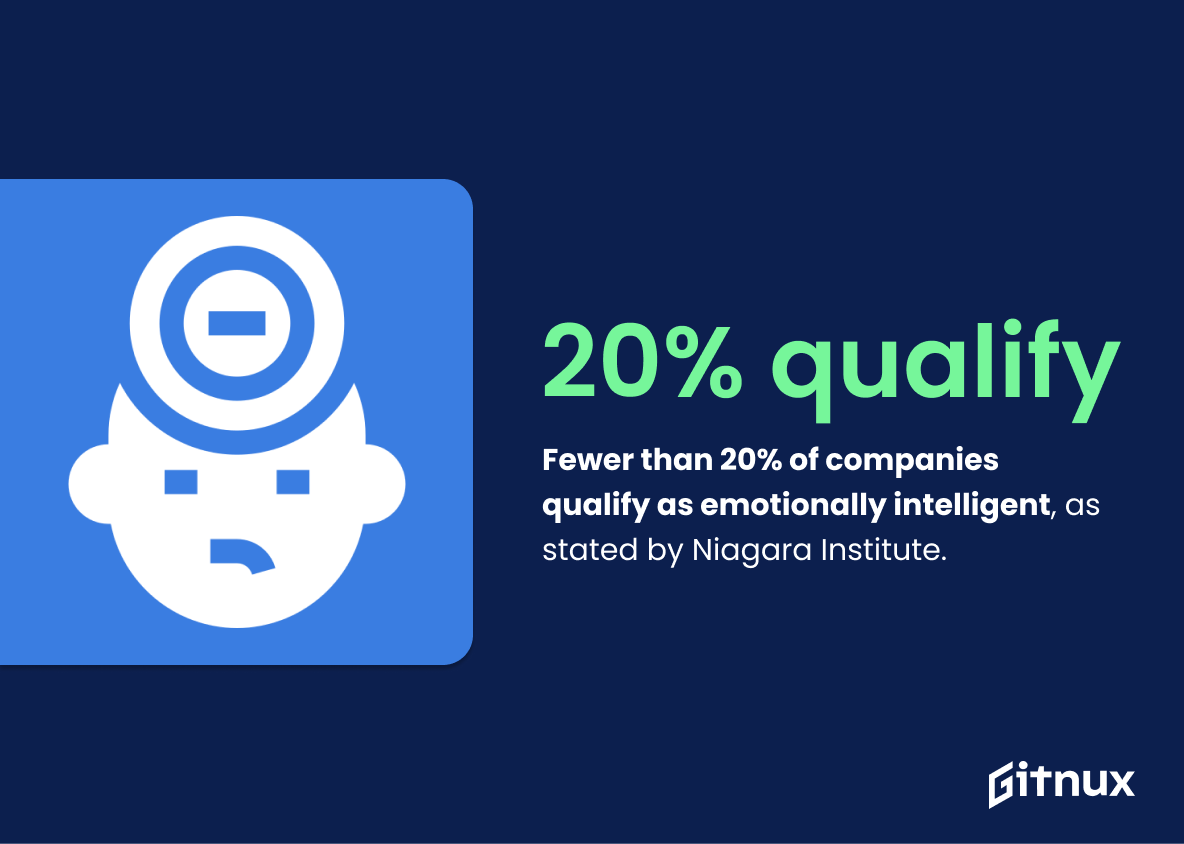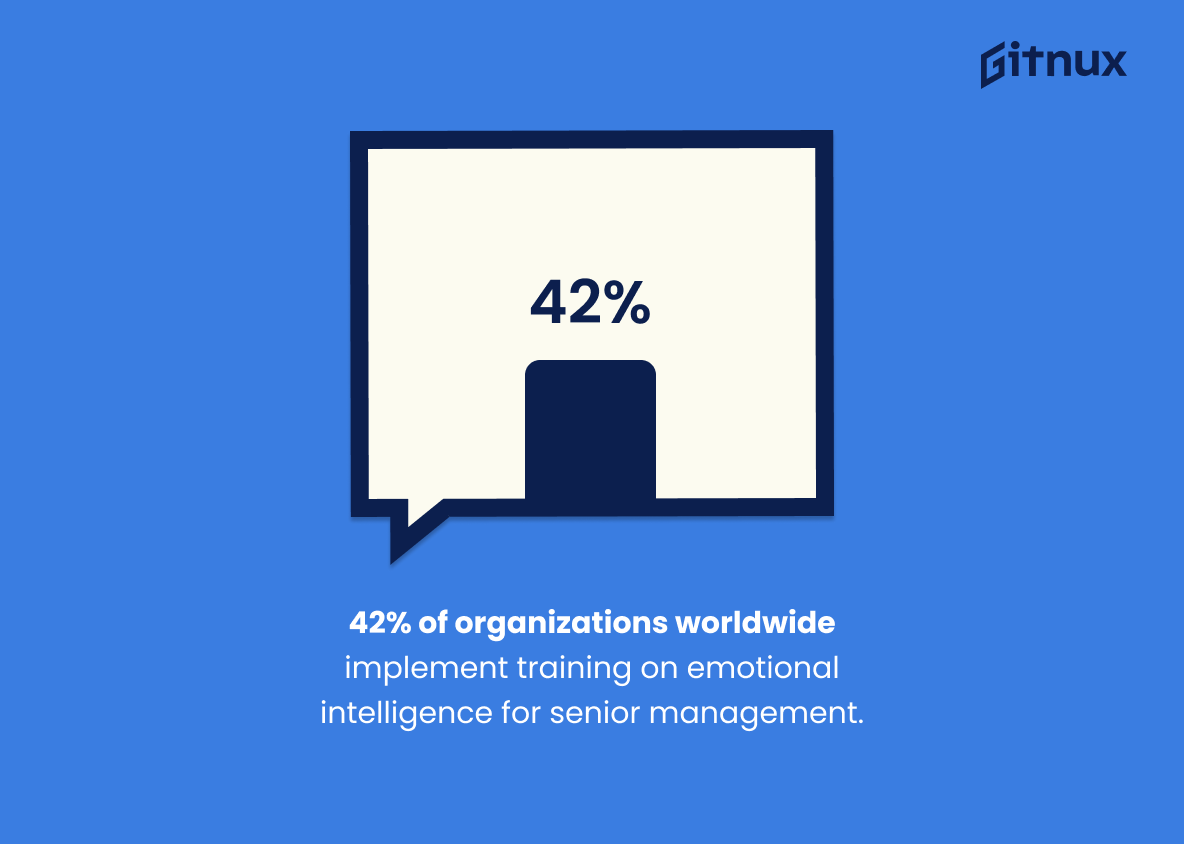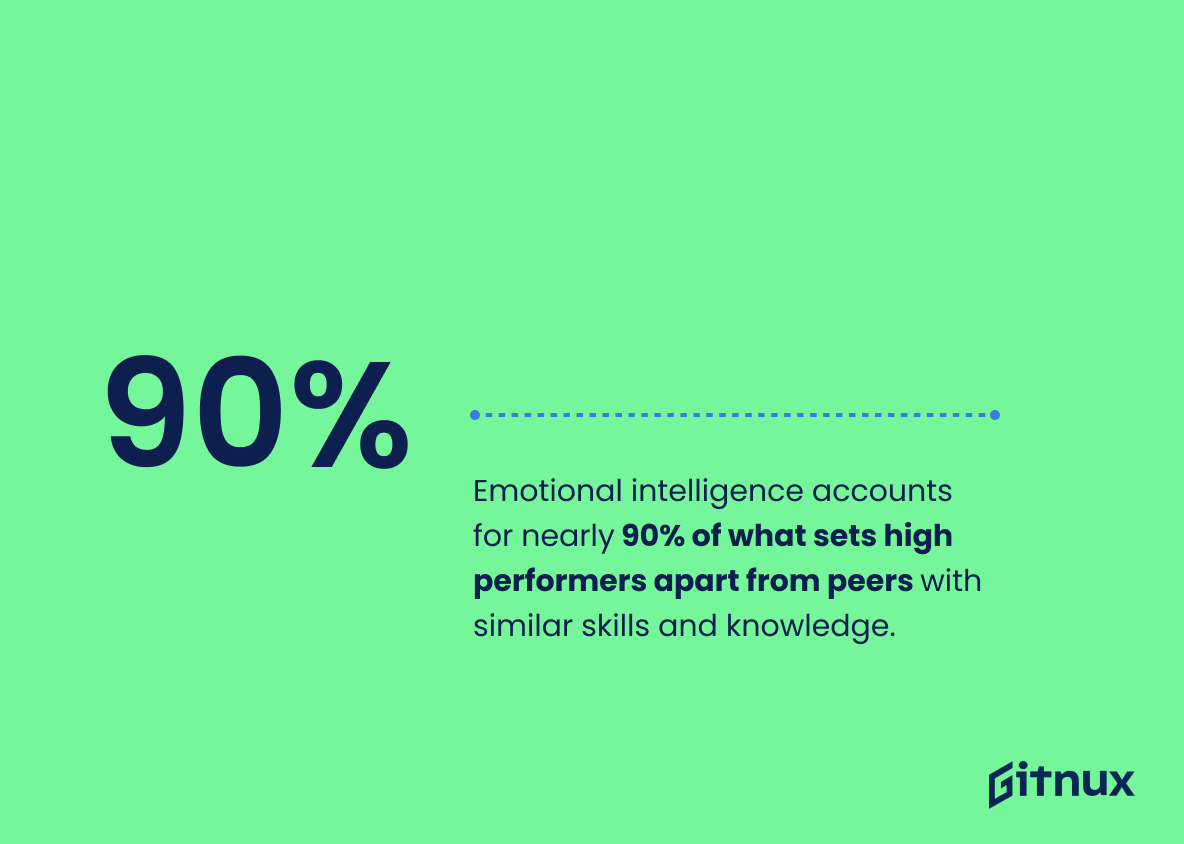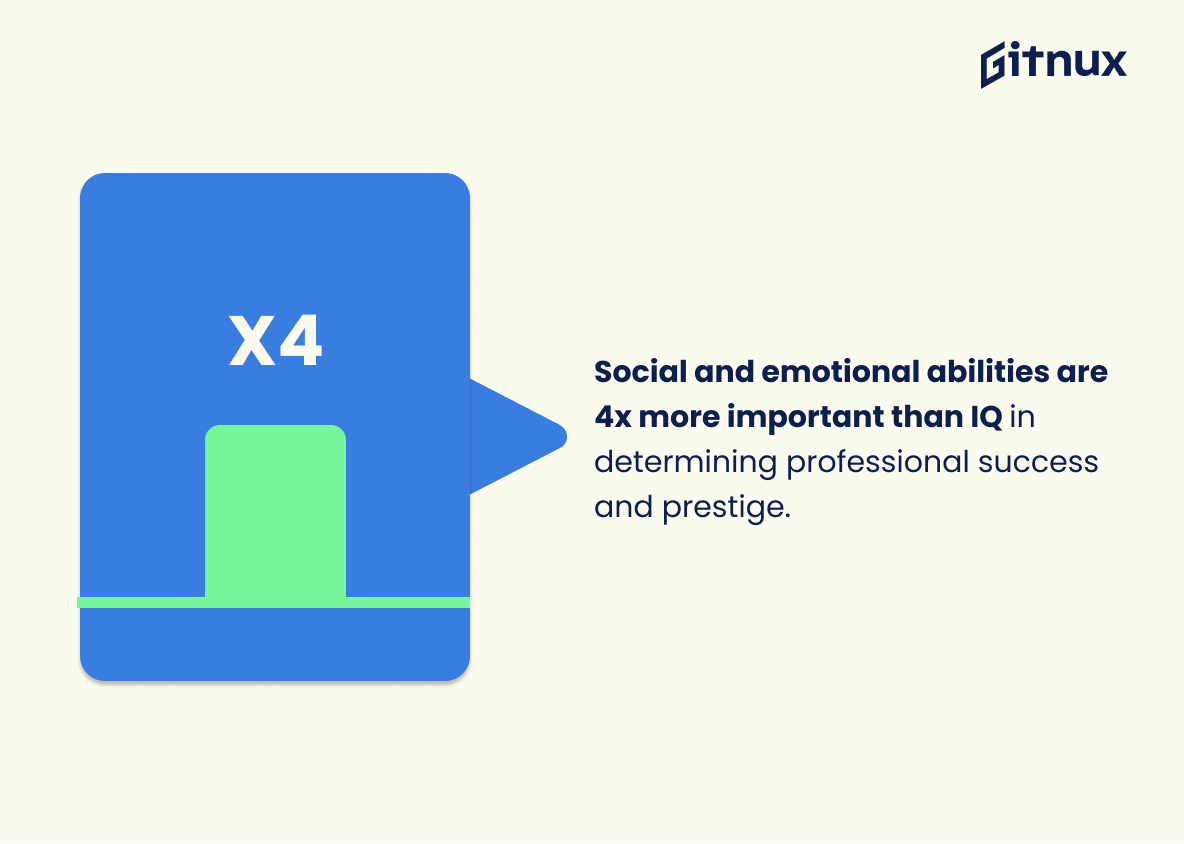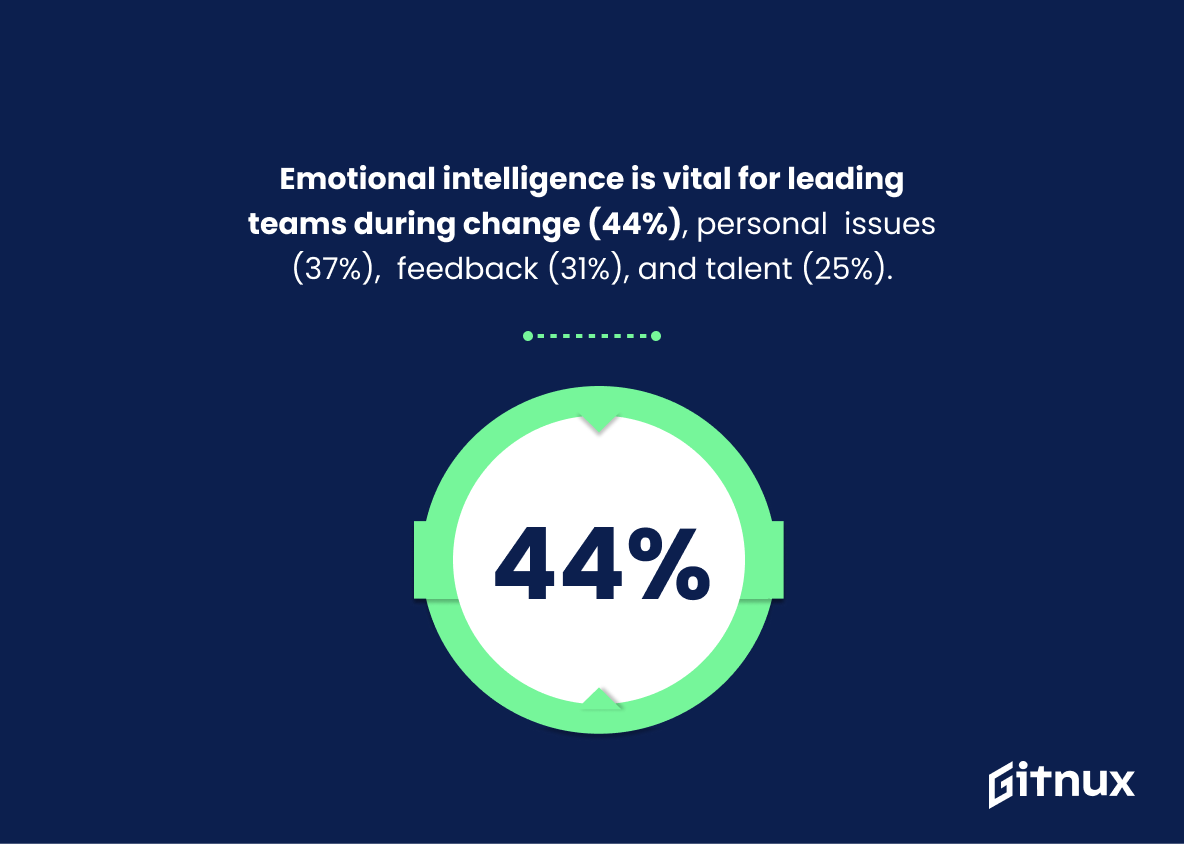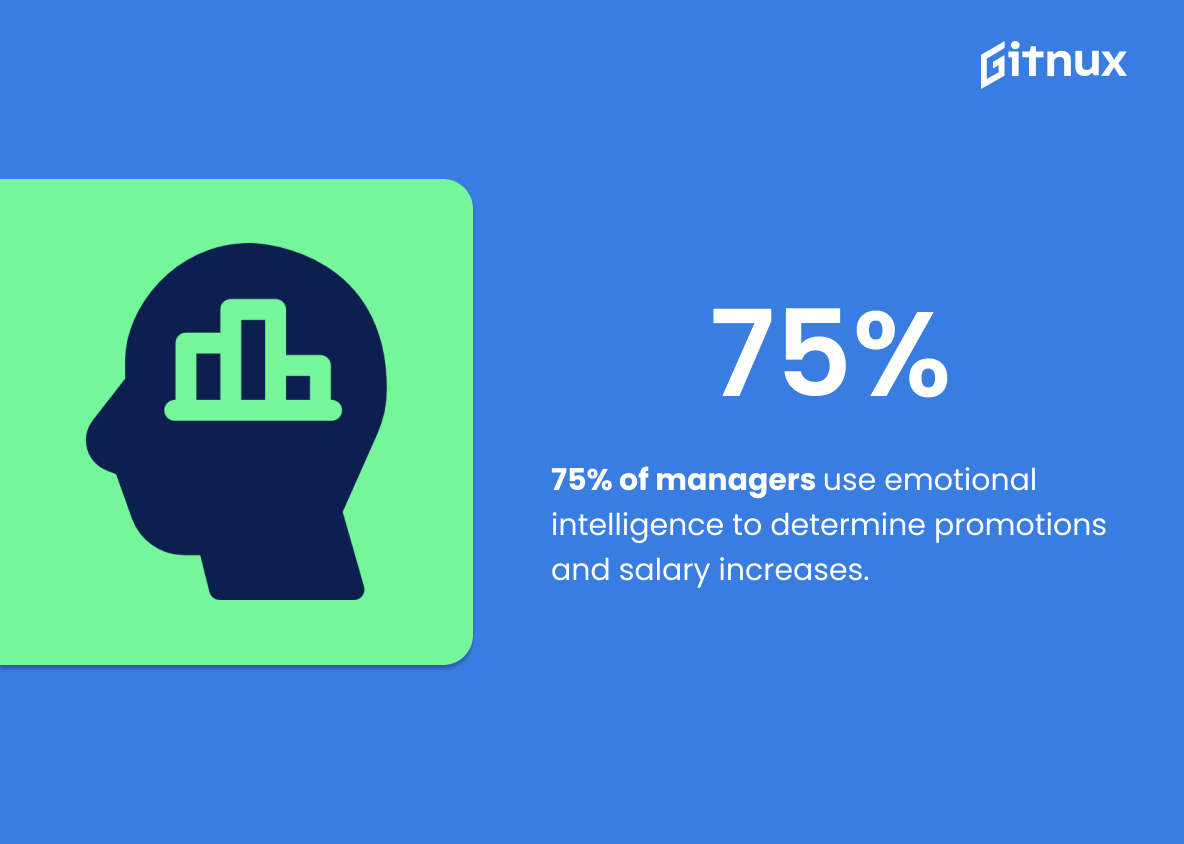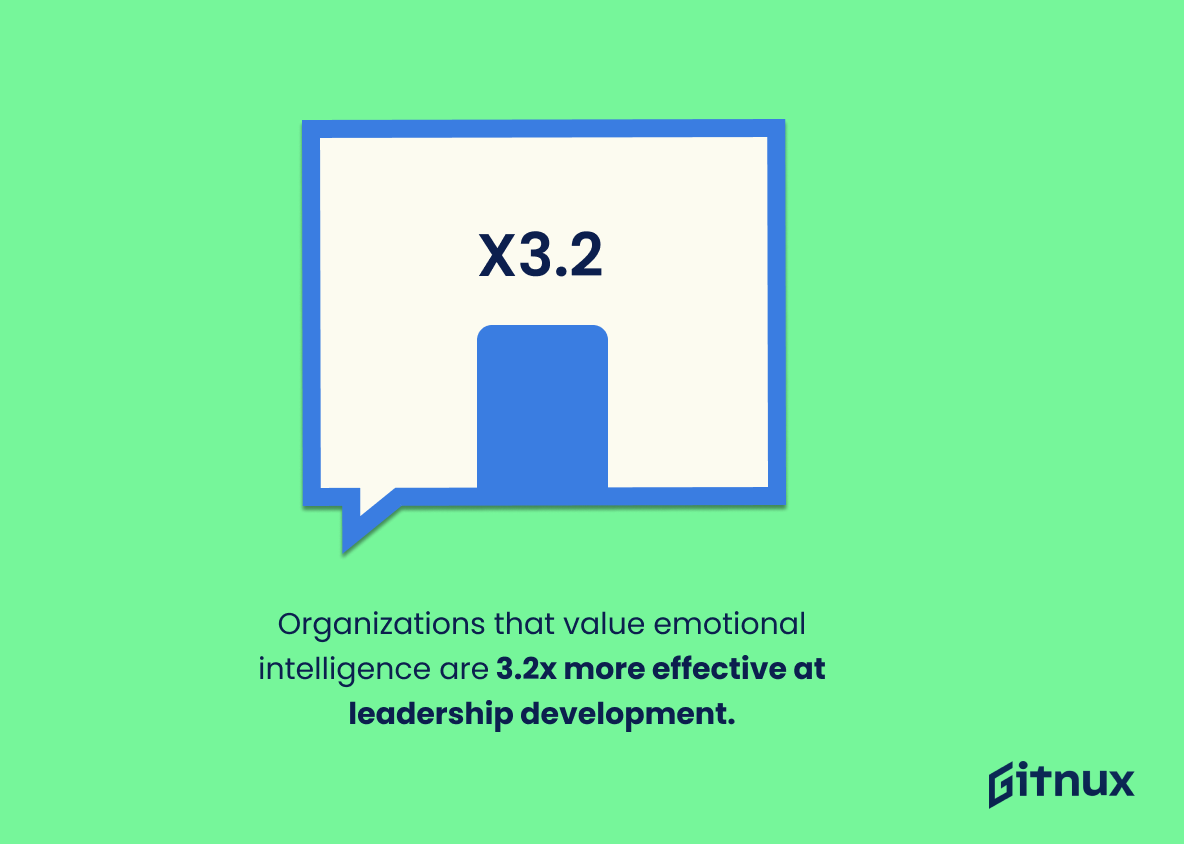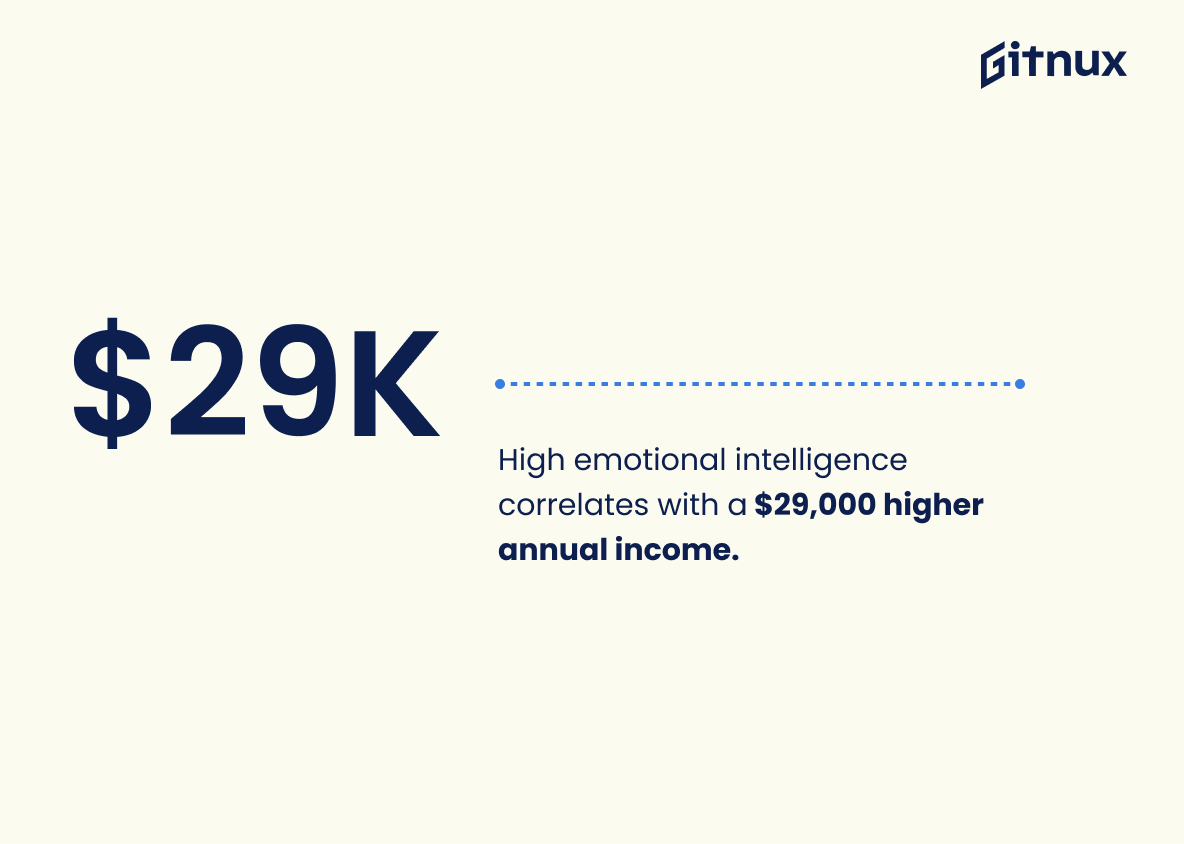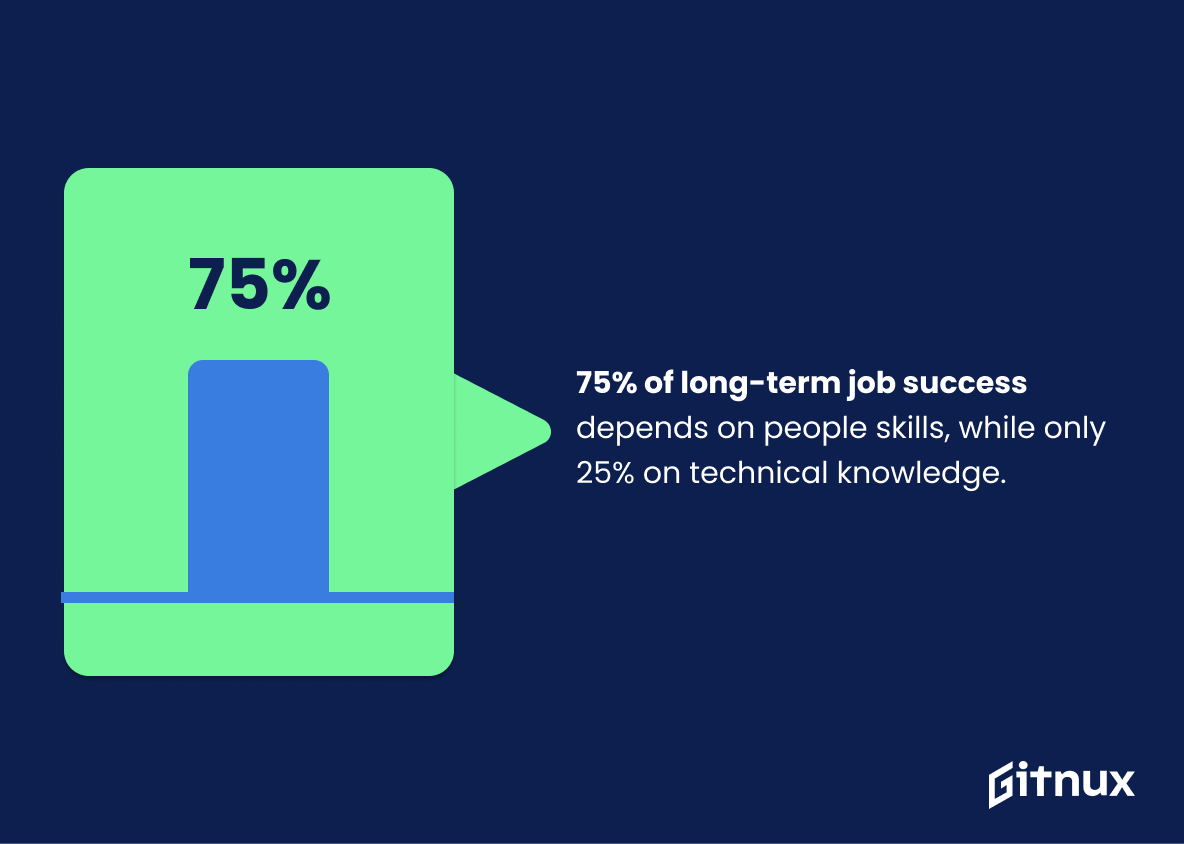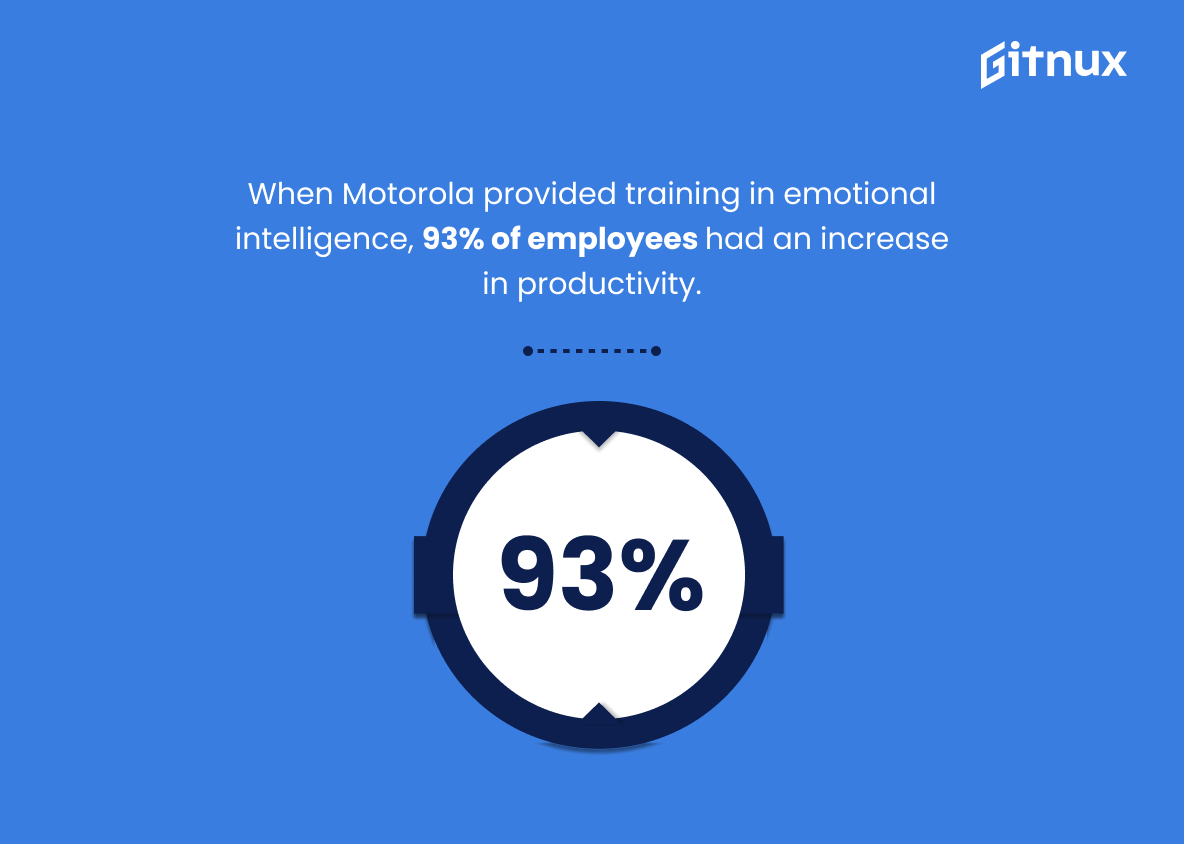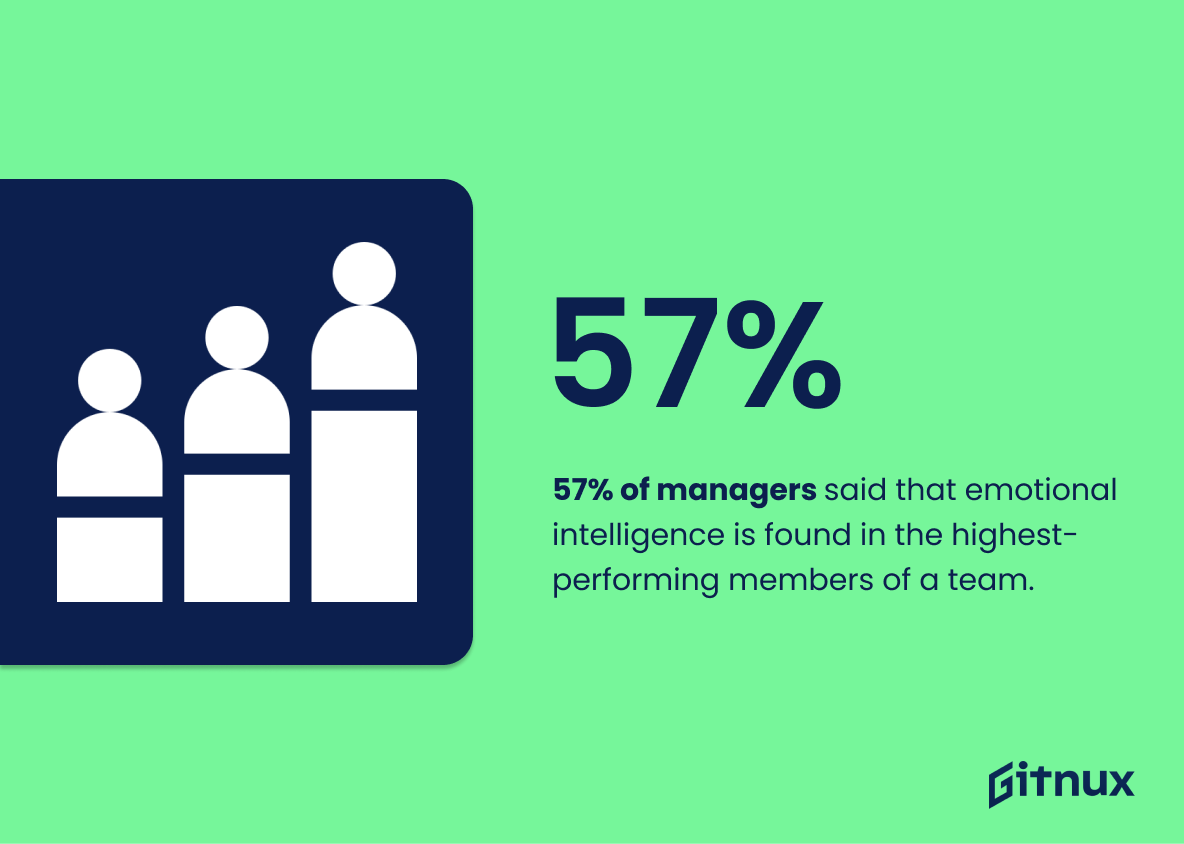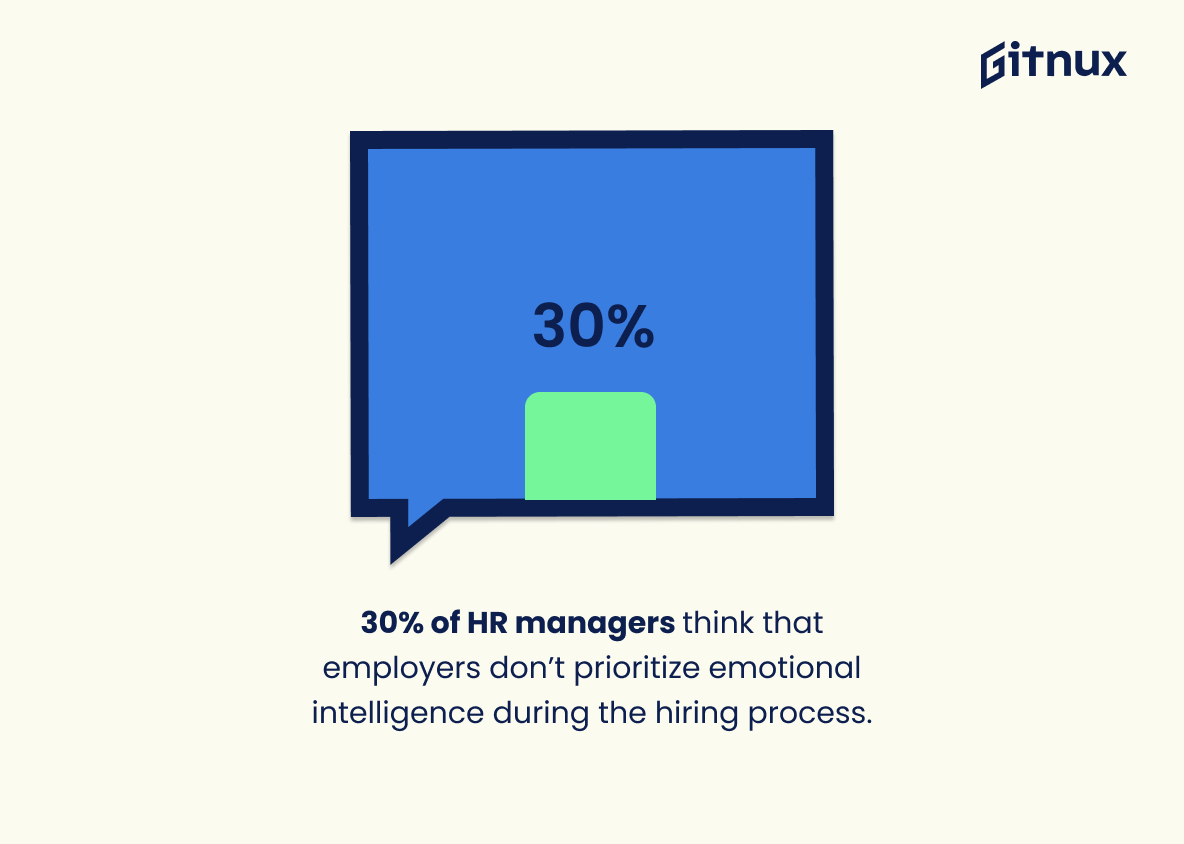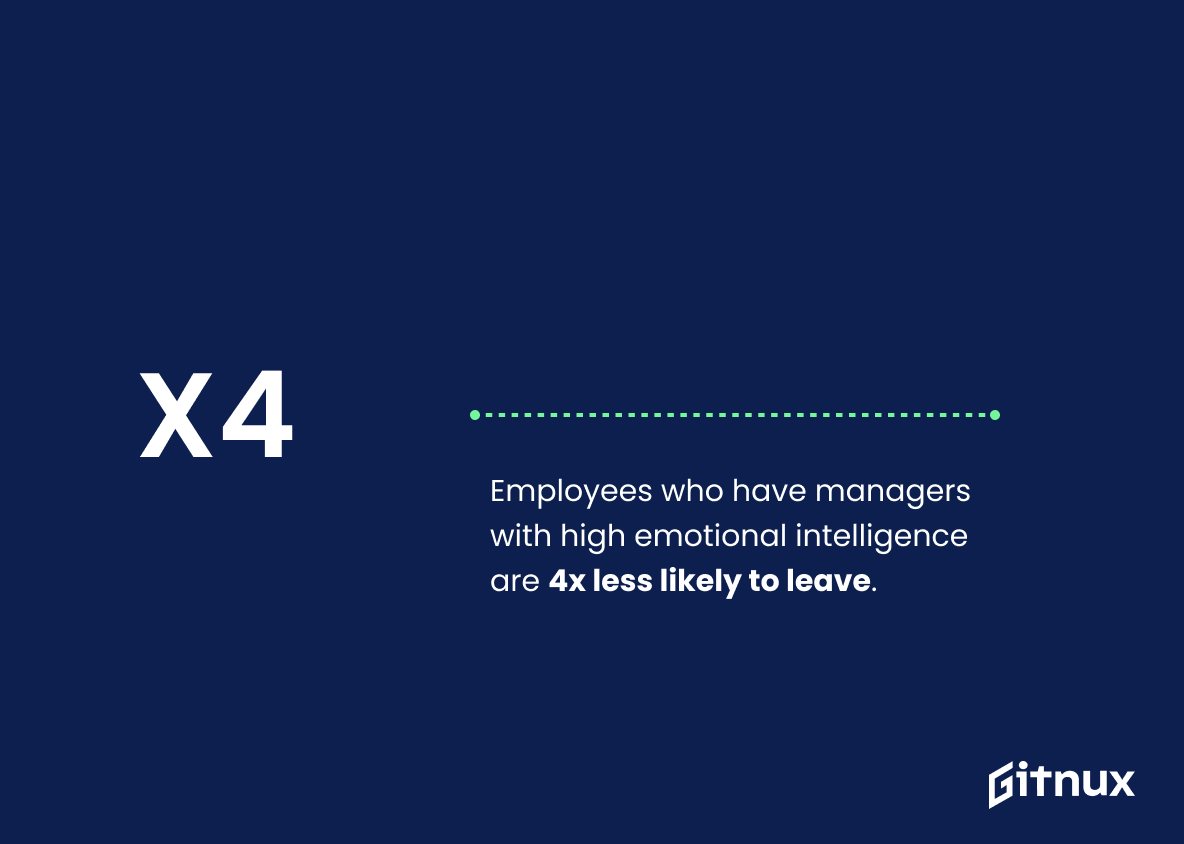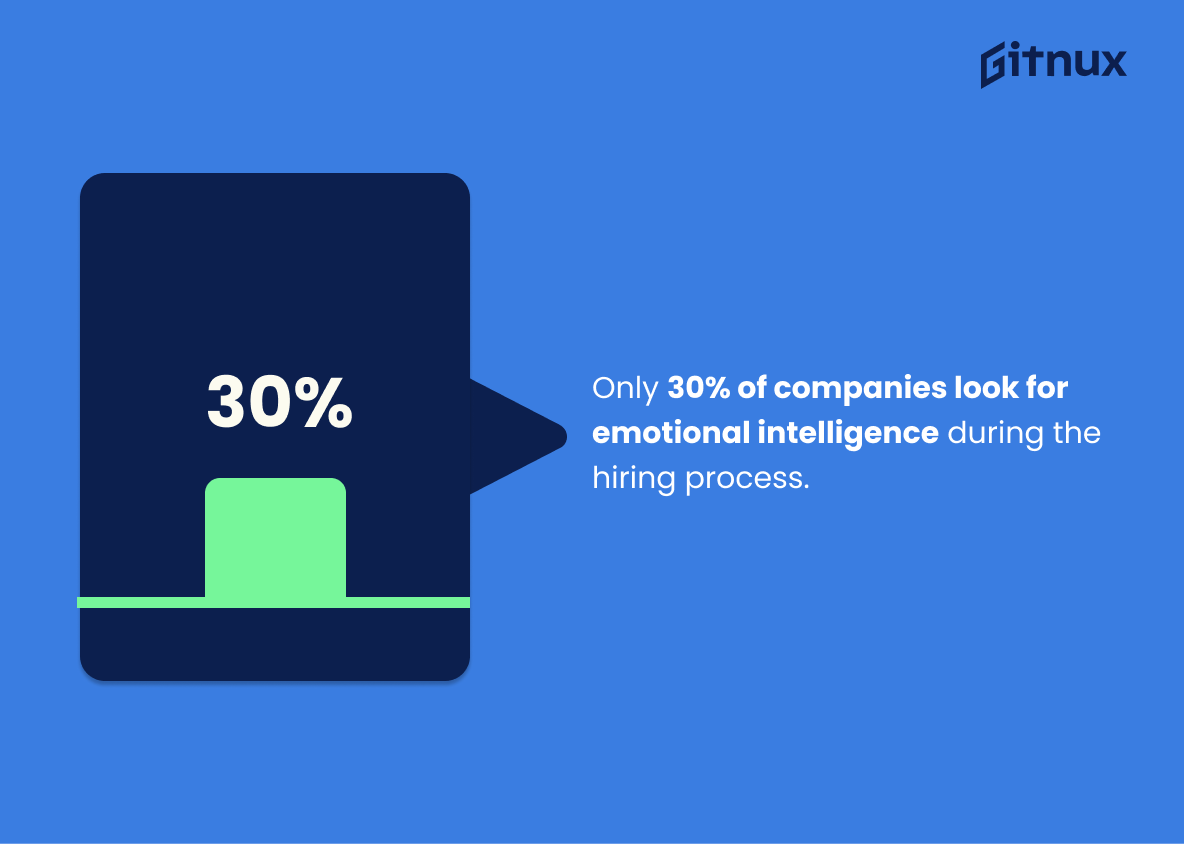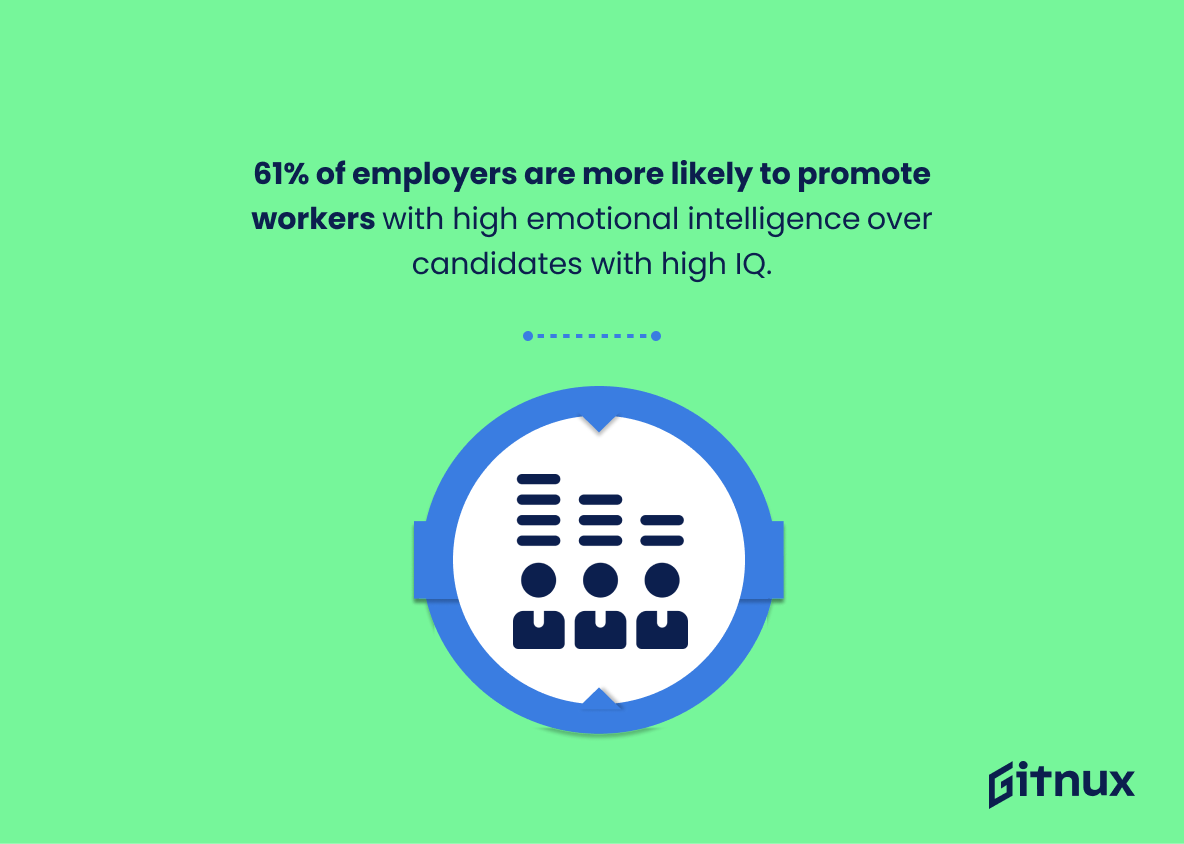As the modern world continues to grow and evolve, emotional intelligence (EI) has become more important than ever. It is the ability to understand and manage your own emotions, as well as the emotions of others. This skill is critical for success in any area of life, from personal relationships to professional success.
In this article, we will look at some important emotional intelligence statistics and trends, and how it can impact our lives. Multiple studies have shown that people with strong emotional intelligence have higher levels of success, better relationships, and improved mental health.
Emotional Intelligence: The Most Important Statistics
Only 42% of companies provide specific training to help employees cultivate emotional intelligence.
95% of surveyed HR managers and 99% of employees believe that emotional intelligence is a must-have skill for every staff member.
General emotional intelligence statistics
Fewer than 20% of companies qualify as emotionally intelligent, as stated by Niagara Institute.
68% of organizations don’t have any formal tools in place to identify, develop or leverage EI.
42% of organizations worldwide implement training on emotional intelligence for senior management.
90% of top performers have high emotional intelligence.
Emotional intelligence accounts for nearly 90% of what sets high performers apart from peers with similar technical skills and knowledge.
Only about 36% of people in the world are emotionally Intelligent, according to Passive Secrets information.
A study followed 80 scientists over the course of 40 years and found that social and emotional abilities are 4x more important than IQ in determining professional success and prestige.
95% of people think they’re self-aware, but only 10 to 15% actually are, according to Business Harvard Review.
How valuable are emotional intelligence skills?
Managers believe that emotional intelligence is crucial for success in leading teams through times of change (44%), addressing personal issues of employees (37%), giving feedback or employee appraisals (31%), and spotting talent (25%).
71% of employers value emotional intelligence over IQ, reporting that employees with high emotional intelligence are more likely to stay calm under pressure, resolve conflict effectively, and respond to co-workers with empathy.
75% of managers use emotional intelligence to determine promotions and salary increases.
82% of global companies now utilize EI tests for executive positions. 72% of these companies give the tests to middle management, and only 59% of companies give the tests to entry-level positions.
Organizations that value and widely use emotional intelligence are 3.2x more effective at leadership development.
59% of employers would not hire someone who has a high IQ but low EI. 75% of employers are more likely to promote a worker with high emotional intelligence.
What are the main benefits of emotional intelligence?
A new TalentSmart research found that people with high emotional intelligence make an average of $29,000 per year more than people with low EQs. On average, every point increase in emotional intelligence adds $1,300 to an annual salary.
64% of emotionally intelligent companies have a high degree of empowerment and tolerance for risk. Emotionally intelligent organizations also report strong customer experiences, customer loyalty, and customer advocacy.
Research conducted with Fortune 500 CEOs, found that 75% of long-term job success depends on people skills, while only 25% on technical knowledge.
According to Human Performance Technology by DTS information, restaurants with high EI managers have higher guest satisfaction, lower turnover, and 34% greater profit growth.
After a Motorola manufacturing facility provided training in stress management and emotional intelligence, 93% of employees had an increase in productivity.
72% of employees ranked respectful treatment of all employees at all levels as the top factor in job satisfaction.
Emotional intelligence in the workplace
57% of managers, according to a recent LHH survey, said that emotional intelligence is likely to be found in the highest-performing members of a team.
Only 42% of companies provide specific training to help employees cultivate emotional intelligence.
30% of HR managers think that employers don’t prioritize emotional intelligence enough during the hiring process.
Compared to 33 other important workplace skills, emotional intelligence is the strongest predictor of performance, explaining a full 58% of success in all types of jobs.
Employees who have managers with high emotional intelligence are 4x less likely to leave than those who have managers with low emotional intelligence.
80% of employees consider emotional intelligence crucial for developing their careers.
Only 30% of companies look for emotional intelligence during the hiring process.
99% of working American adults report working with at least one person who isn’t self-aware.
61% of employers are more likely to promote workers with high emotional intelligence over candidates with high IQ.
Emotional intelligence in leadership
87% of millennials today are motivated by the emotional intelligence of their leaders to help the company succeed.
The Chartered Governance Institute UK & Ireland reports that emotional intelligence accounts for nearly 90% of what sets high performers leaders apart from those with similar technical skills and knowledge.
DDI ranks empathy as the number one leadership skill, reporting that leaders who master empathy perform more than 40% higher in coaching, engaging others, and decision-making.
64% of organizations spend only 10% or less of their training & development budget on leadership development.
37% of organizations use emotional intelligence assessments to help inform their leadership development programs.
Employees who believe that their leaders treat them with respect are 55% more engaged, 63% more satisfied, and 58% more focused on their jobs.
There is a 31% gap in leadership development effectiveness between organizations where emotional intelligence is valued, versus those in which it is not.
Emotional intelligence and the future of work
Demands for emotional intelligence skills across all industries are expected to grow by 26% in the US and 22% in Europe by 2030. The market is driven by the increasing awareness among organizations about the benefits of emotional intelligence.
Emotional intelligence is considered a core skill today and is one of the top 10 vital skills for the future workforce.
36% of executives think that emotional intelligence will become a must-have skill in a few years.
95% of surveyed HR managers and 99% of employees believe that emotional intelligence is a must-have skill for every staff member.
After increasing every year since 2017, emotional intelligence dropped in 2020 at the onset of the pandemic.
The Journal of Personality released new research, showing that three out of four facets of emotional intelligence have declined over the years. The meta-analysis involved 70 studies with 17,000 participants. It showed that well-being, self-control, and emotionality have declined over the years.
Conclusion
In conclusion, emotional intelligence is an important factor that affects many aspects of life. It determines how successful people are in their relationships, their career, and other areas of their life. Statistical evidence clearly shows us that people with higher levels of emotional intelligence tend to be more successful and have better outcomes in life. Therefore, it is essential to focus on improving your and your employees’ emotional intelligence in order to increase the chances of success.
Resources
CareerBuilder: “Seventy-One Percent of Employers Say They Value Emotional Intelligence Over IQ”, cited January 2023. (Source)
CGI: “Emotional intelligence equals success during COVID-19”, cited January 2023. (Source)
GlobeNewswire: “Emotional Intelligence Market: Global Industry Trend Analysis and Forecast 2022 – 2030 | JC MARKET RESEARCH”, cited January 2023. (Source)
Harvard Business School: “Why emotional intelligence is important in leadership”, cited January 2023. (Source)
Human Capital Institute: “Leadership and Emotional Intelligence: The Keys to Driving ROI and Organizational Performance”, cited January 2023. (Source)
Human Performance Technology by DTS: “30 Interesting Statistics on Emotional Intelligence”, cited January 2023. (Source)
Institute for Health and Human Potential: “Executive Summary. The Business Case for Emotional Intelligence”, cited January 2023. (Source)
LHH: “EQ: The Great White Whale of Leadership Development”, cited January 2023. (Source)
McKinsey & Company: “Skill shift: Automation and the future of the workforce”, cited January 2023. (Source)
Mitrefinch: “EQ and the future of work”, cited January 2023. (Source)
Natural HR: “Webinar Review: Why is Emotional Intelligence critical to the success of HR?”, cited January 2023. (Source)
Niagara Institute: “The statistics on emotional intelligence in the workplace”, cited January 2023. (Source)
Passive Secrets: “39 Best Emotional Intelligence Statistics To Know In 2022”, cited January 2023. (Source)
Six Seconds: “How Did the Pandemic Impact People’s Emotional Intelligence?”, cited January 2023. (Source)
Soocial: “22 Emotional Intelligence Statistics To Make Your Day (2022)”, cited January 2023. (Source)
Statista: “By when do you think emotional intelligence will become a “must-have” skill?”, cited January 2023. (Source)
Statista: “Share of organizations conducting training in emotional intelligence worldwide in 2019, by type”, cited January 2023. (Source)
TalentSmart: “EQ Outcomes are Backed by Research”, cited January 2023. (Source)
TalentSmart: “Increasing Your Salary with Emotional Intelligence”, cited January 2023. (Source)
Vantage Circle: “Understanding and Utilizing Emotional Intelligence in the Workplace”, cited January 2023. (Source)
World Economic Forum: “The massive benefits of boosting your Emotional Intelligence”, cited January 2023. (Source)
World Economic Forum: The 10 skills you need to thrive in the Fourth Industrial Revolution”, cited January 2023. (Source)
